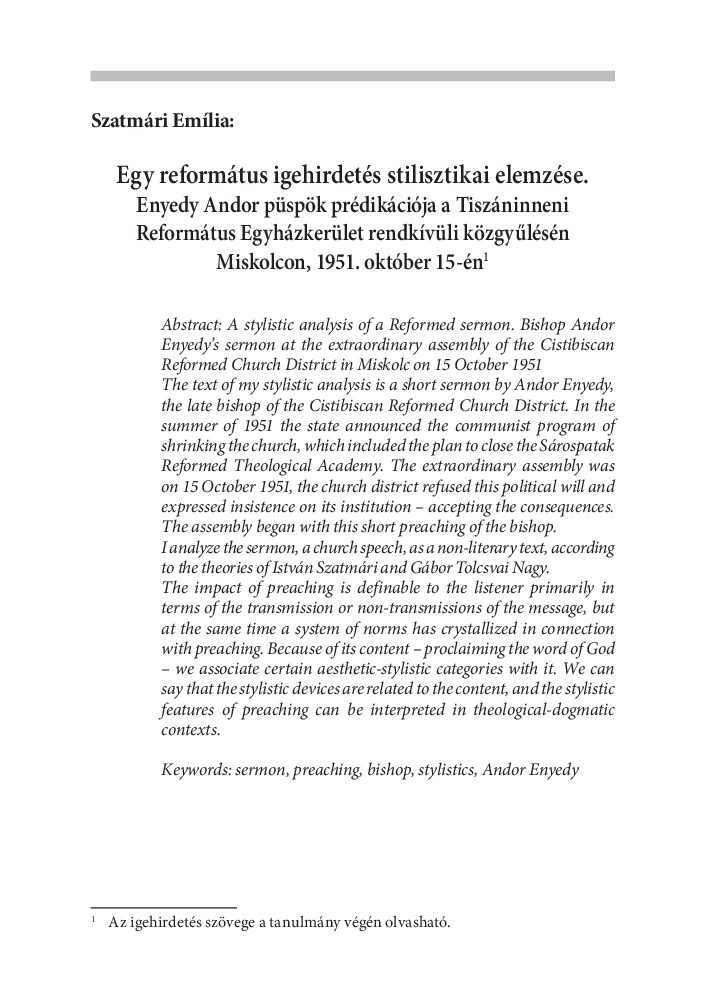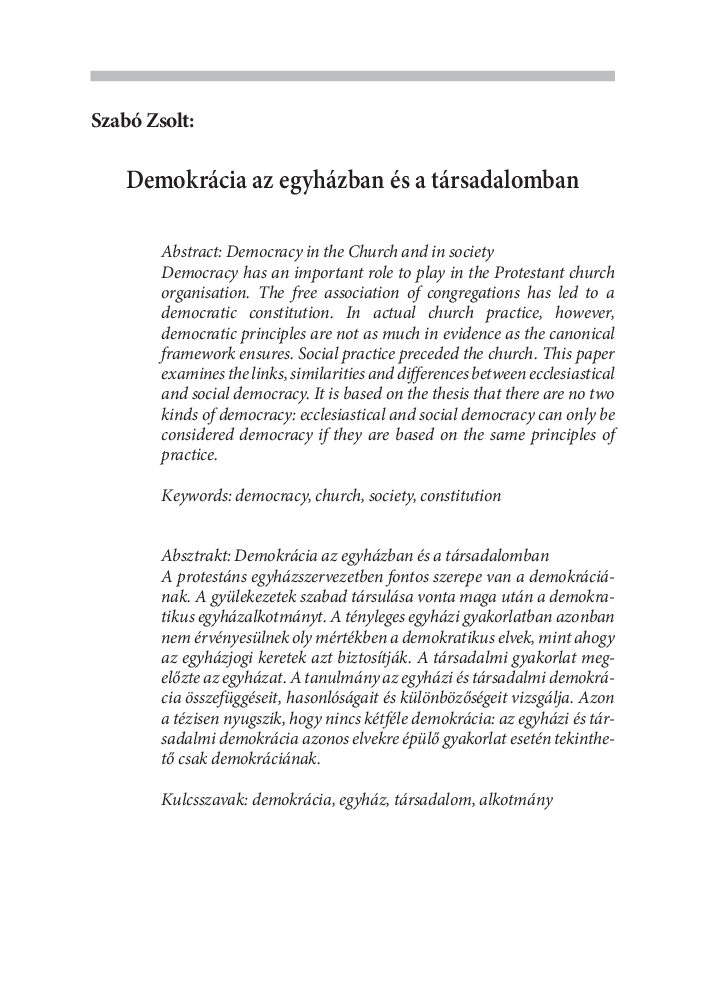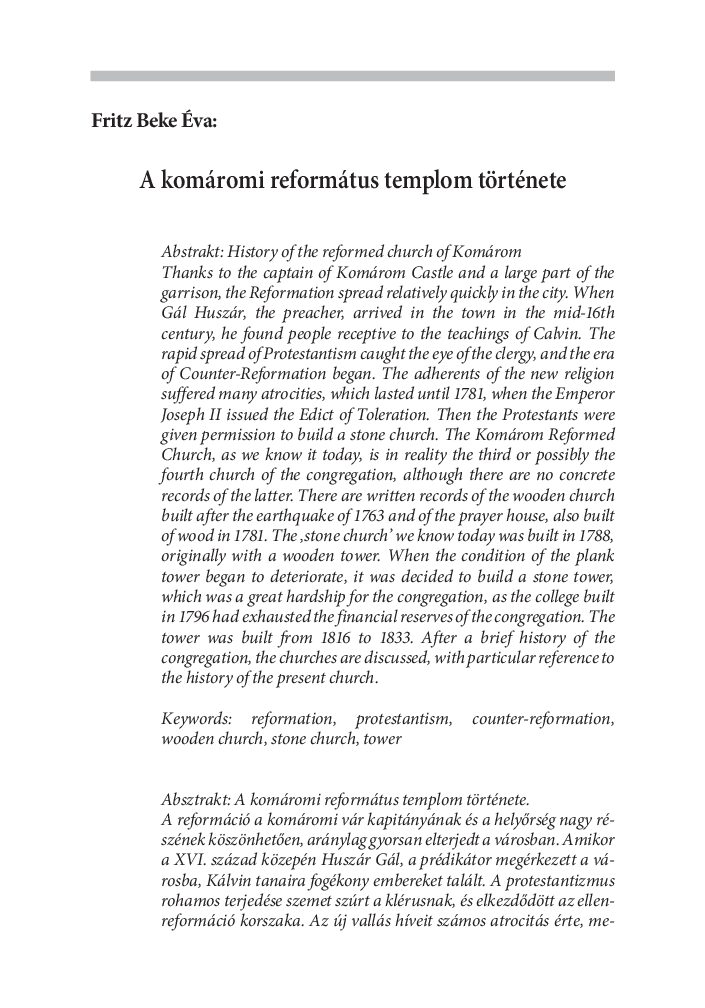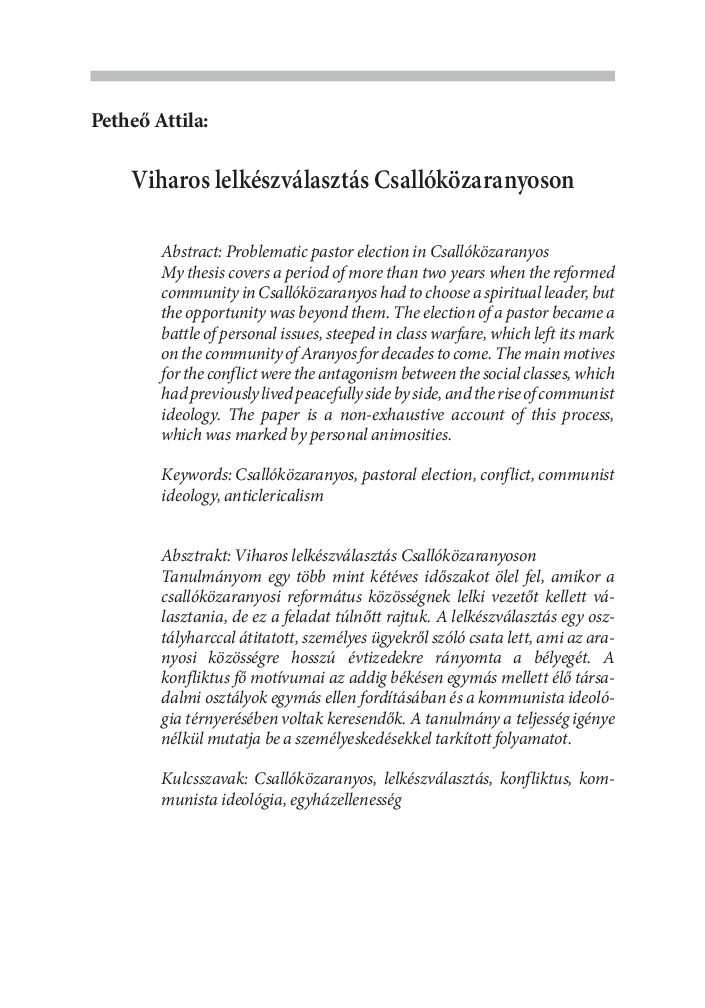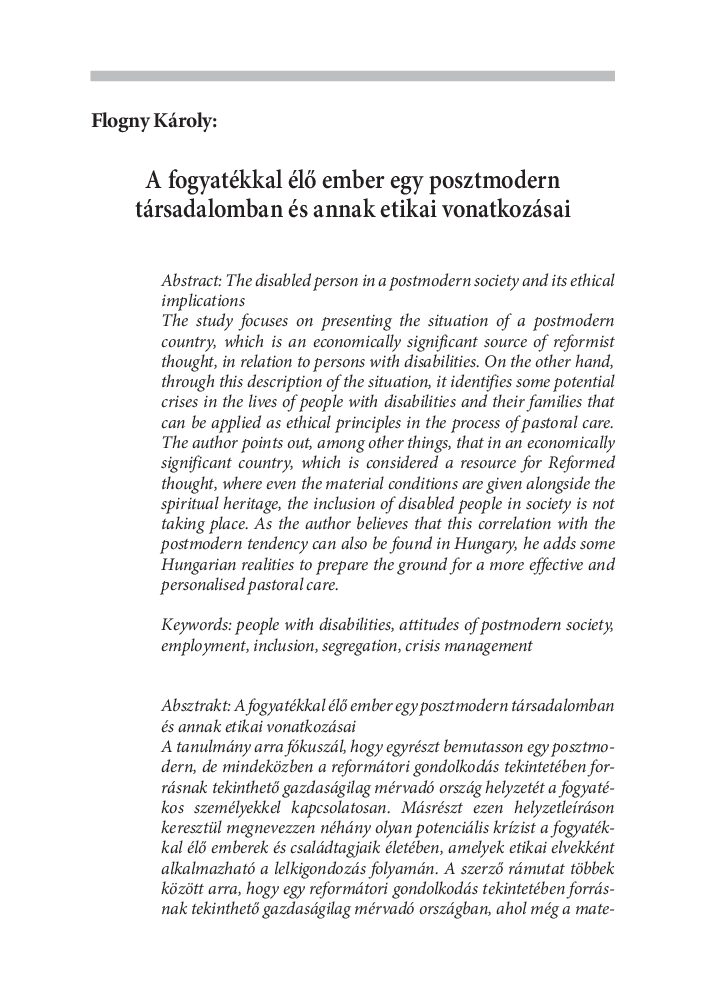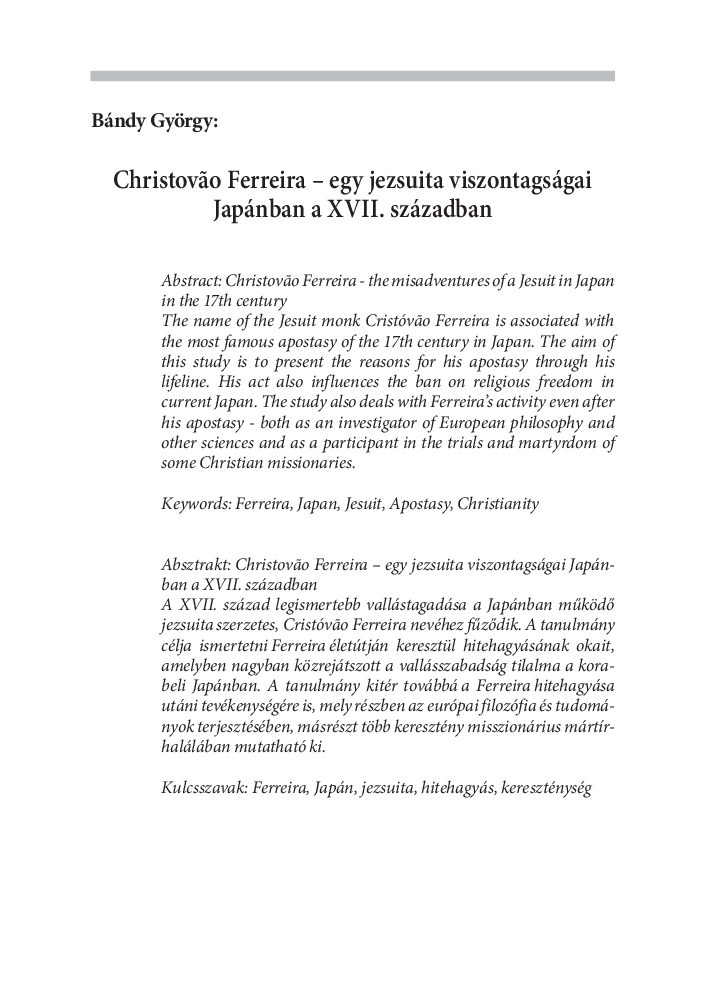The problem of authentic transmission of Christian values in the profession of religious education. The role of the religion teacher in transmitting values is crucial, as religious education is not merely about imparting knowledge but also encompasses the moral, spiritual, and ethical development of students. The transmission of Christian values and ensuring that young people are able to embody these values in their own lives largely depends on the religion teacher’s ability to authentically convey these values through personal example. The most effective
tool for value transmission is the religion teacher’s own personality and behavior. This study emphasizes the dangers arising from misinterpretations or „excessive realizations” of religious virtues— such as humility, love, patience, service, wisdom, and perseverance — and provides guidance for achieving a balance between the core values and their exaggerated (behavioral or attitudinal) expressions. The „core qualities” model offers religion teachers a framework for self-reflection, helping them regularly evaluate the example they set, their influence on others, and how they can grow toward authentically conveying the value system that forms the foundation of their mission.
Keywords: values, Christian values, teacher role model, authentic communication, value distortion, balance

